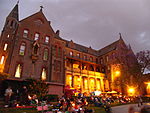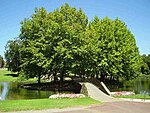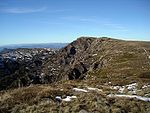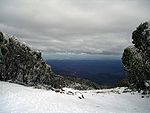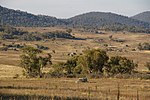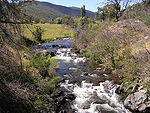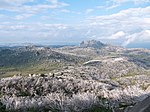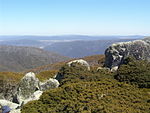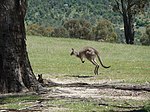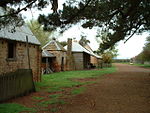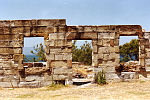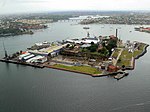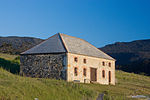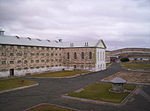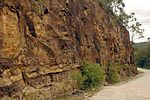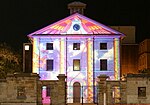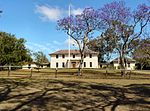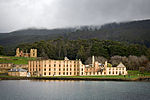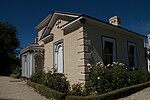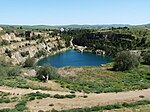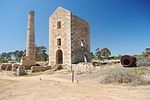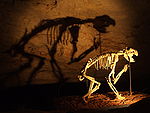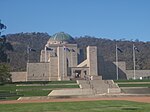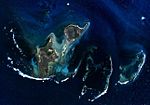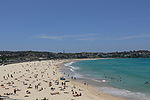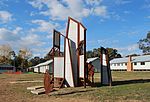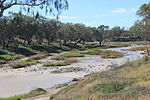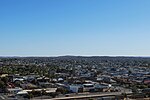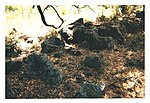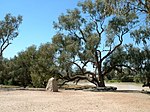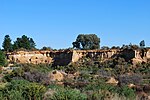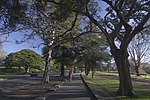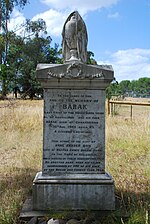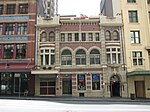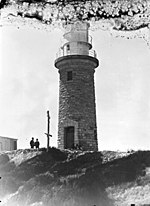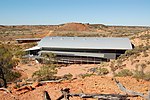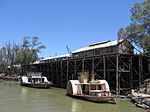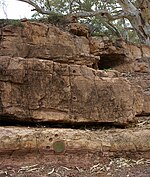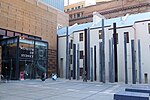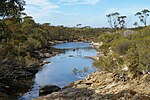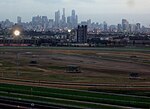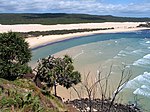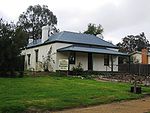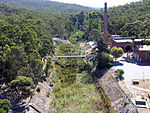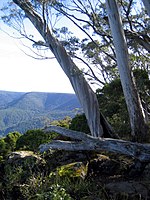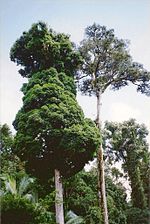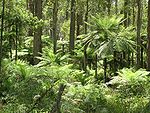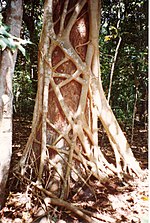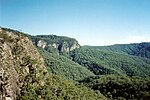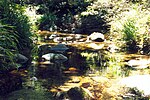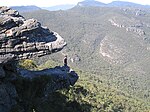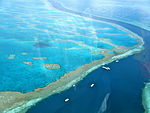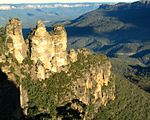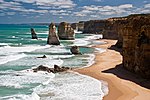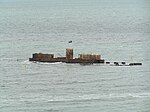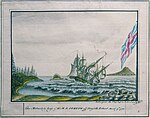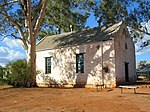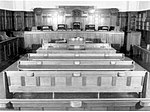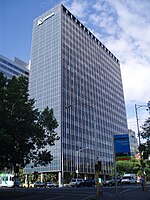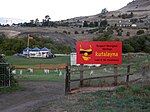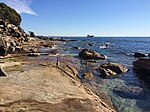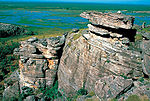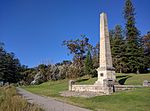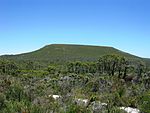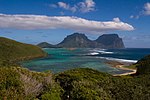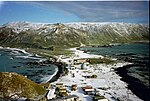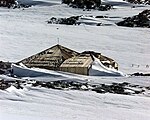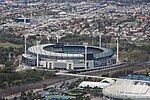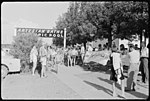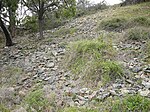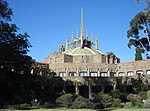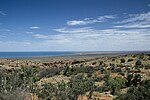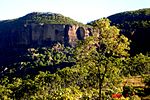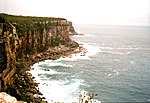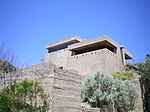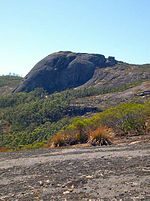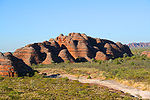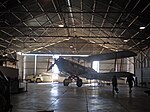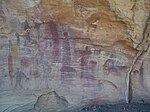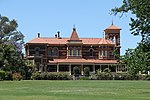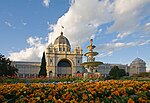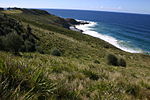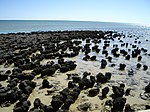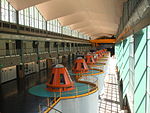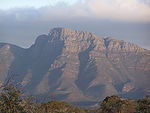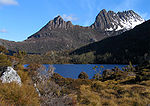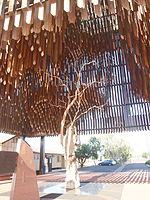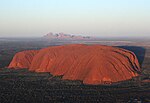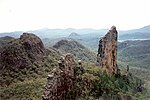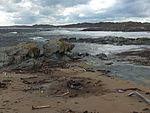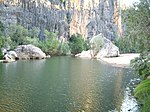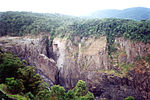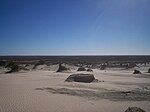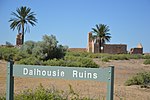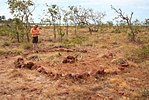National Heritage List (Australia)
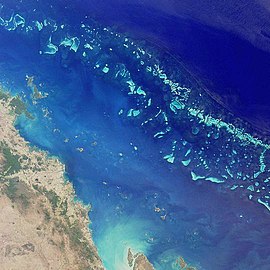 Satellite image of part of the Great Barrier Reef adjacent to the Queensland coastal areas of Airlie Beach and Mackay. | |
| Type | Heritage register of natural, historic and indigenous places that are not owned by the Commonwealth of Australia |
|---|---|
| Country | Australia |
| Years | 2003–present |
| Preceded by | Register of the National Estate |
| Compiled by | Commonwealth of Australia via the Australian Heritage Council |
| Approved by | Minister for the Environment |
The Australian National Heritage List or National Heritage List (NHL) is a heritage register, a list of national heritage places deemed to be of outstanding heritage significance to Australia, established in 2003. The list includes natural and historic places, including those of cultural significance to Indigenous Australians such as Aboriginal Australian sacred sites. Having been assessed against a set list of criteria, once a place is put on the National Heritage List, the provisions of the Environment Protection and Biodiversity Conservation Act 1999 (EPBC Act) apply.
All places on this list can be found on the online Australian Heritage Database, along with other places on other Australian and world heritage listings.
History
[edit]The National Heritage List was established in 2003 by an amendment to the Environment Protection and Biodiversity Conservation Act 1999.[1]
The National Heritage List, together with the Commonwealth Heritage List, replaced the former Register of the National Estate, which was closed and archived in 2007. Places on the National Heritage List are places of outstanding heritage value for Australia, while the Commonwealth Heritage List are heritage places that are owned or controlled by the Commonwealth of Australia.[2][3]
Criteria for listing
[edit]The National Heritage List is a list of places deemed to be of outstanding heritage significance to Australia.[4] Once on the list, the provisions of the EPBC Act apply.[5] To be included on the list, a nominated place is assessed by the Australian Heritage Council against nine criteria:[6]
- importance in the course, or pattern, of Australia's natural or cultural history
- possession of uncommon, rare or endangered aspects of Australia's natural or cultural history
- potential to yield information that will contribute to an understanding of Australia's natural or cultural history
- importance in demonstrating the principal characteristics of a class of Australia's natural or cultural places or environments
- importance in exhibiting particular aesthetic characteristics valued by a community or cultural group
- importance in demonstrating a high degree of creative or technical achievement at a particular period
- strong or special association with a particular community or cultural group for social, cultural or spiritual reasons
- special association with the life or works of a person, or group of persons, of importance in Australia's natural or cultural history
- importance as part of Indigenous tradition.
In addition, the place must pass a "significance threshold"; it must have 'outstanding' heritage value to the nation as a whole. This is determined by comparison to other similar places. Once the Heritage Council has made an assessment, it forwards a recommendation to the Minister for the Environment, who shall make a determination.[6]
Composition
[edit]As of 10 August 2020[update], the Australian National Heritage List comprised 120 heritage places as follows:[7]
| State/territory | Number of places |
|---|---|
| Australian Capital Territory | 5 |
| New South Wales | 36 |
| Northern Territory | 4 |
| Queensland | 13 |
| South Australia | 8 |
| Tasmania | 11 |
| Victoria | 32 |
| Western Australia | 15 |
| Other territories | 3 |
| (duplicates): | (4)[a] |
| Total: | 120 |
List
[edit]The Australian National Heritage List comprises these sites:
Notes
[edit]- A One of 15 World Heritage places included in the National Heritage List on 21 May 2007.
- B Yard 4 North was added on 4 August 2009.
Further notes about table
[edit]- ^ The following historic resources are included within multiple state lists:
- Australian Alps (ACT, NSW, Victoria)
- Gondwana Rainforests – Focal Peak Group (NSW and Qld)
- Gondwana Rainforests – Main Range National Park (NSW and Qld)
- Gondwana Rainforests – Shield Volcano Group (NSW and Qld)
- Australian Convict Sites (New South Wales, Tasmania, Western Australia)
See also
[edit]References
[edit]- ^ "Environment Protection and Biodiversity Conservation Act 1999". Federal Register of Legislation. Australian Government. 23 September 2003. Retrieved 2 July 2020.
- ^ "Register of the National Estate". Australian Government. Retrieved 2 July 2020.
- ^ "Heritage places and lists". Australian Government. Dept of Energy and the Environment. Retrieved 2 July 2020.
- ^ "Australia's National Heritage List". Australian Government. Dept of Energy and the Environment. Retrieved 30 January 2020.
- ^ "Environment Protection and Biodiversity Conservation Act 1999". Federal Register of Legislation. Australian Government. Retrieved 2 July 2020.
- ^ a b "National Heritage List criteria". About Australia's heritage. Department of the Environment and Energy, Australian Government. Retrieved 17 May 2018.
- ^ "Search: National Heritage List". Australian Heritage Database. Department of the Environment and Energy, Australian Government. Retrieved 28 September 2017.
External links
[edit]![]() Media related to Australian National Heritage List at Wikimedia Commons
Media related to Australian National Heritage List at Wikimedia Commons

